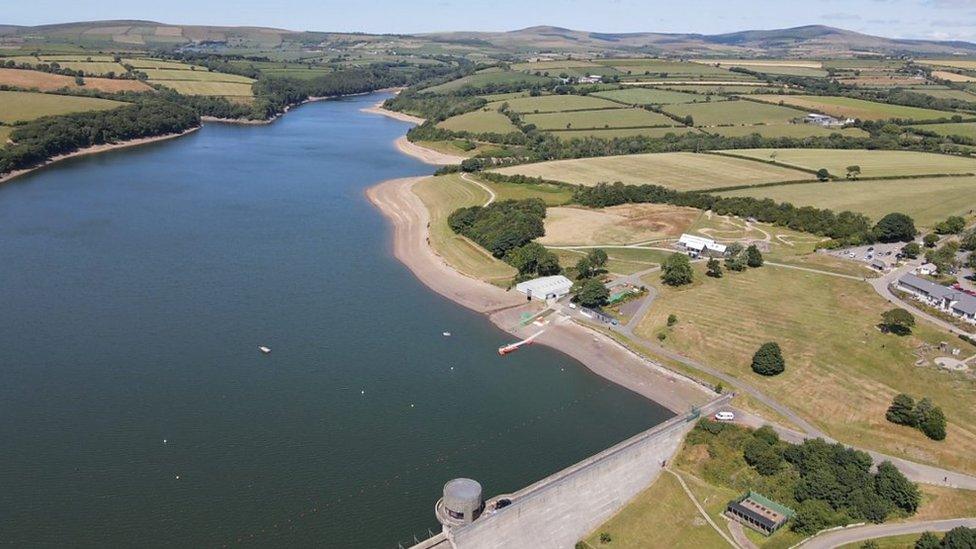Hosepipe ban: Water-use targets not ambitious enough - charity
- Published
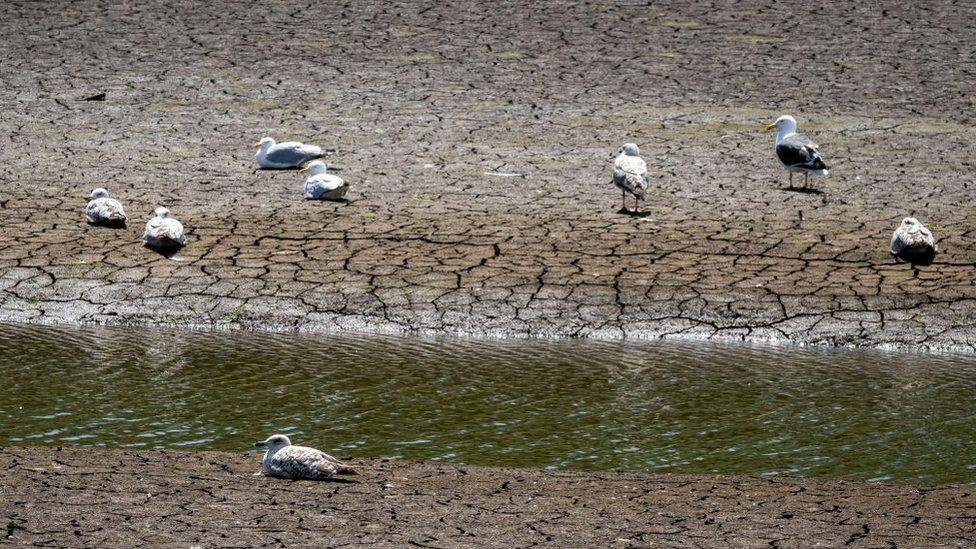
Parts of Wales are set to see a hosepipe ban in place for the first time since 1989
Hosepipe bans will not stop until the Welsh government implements stricter water use targets, a charity has said.
Bleddyn Lake, of Friends of the Earth Cymru labelled current plans - to drop usage from 150 litres per person per day to 110 - as "not ambitious enough".
Mr Lake argued that this target should be brought down "dramatically" to 80 litres per person per day.
The Welsh government said it encouraged everyone "to be considerate in their water usage to maintain water flow".
From 19 August, much of south-west Wales will be subject to a hosepipe ban that is expected to last weeks.
It means people will not be allowed to water their plants, wash their cars or clean windows using a hose.
Welsh Water said it was its first hosepipe ban since 1989 and comes as the country experiences its driest year since 1976.
The company said Pembrokeshire has only seen just over 60% of the expected rainfall between March and July.
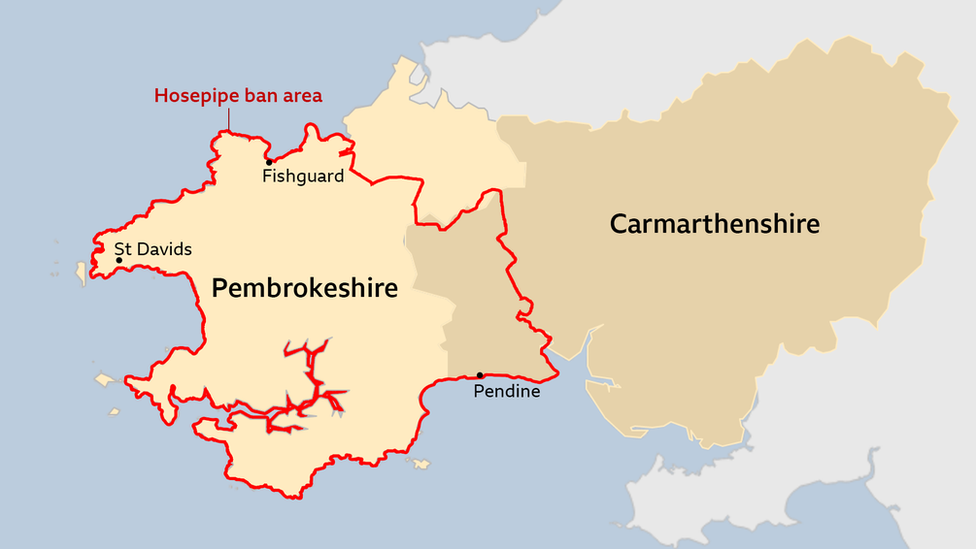
The ban covers much of Pembrokeshire and a small part of Carmarthenshire
Data from the Met Office shows Wales experienced its lowest July rainfall since 2006.
Professor Liz Bentley, from the Royal Meteorological Society said this followed a dry March, April, May and June.
Speaking on BBC Radio Wales Breakfast, she said: "It's left us with particularly low levels in the rivers and reservoirs, and there's very little rain in the next 10 days to two weeks."
"I expect as we go forward through August, that we'll see more parts, particularly the southern half of the UK and Wales, seeing more hosepipe bans coming in over that time."
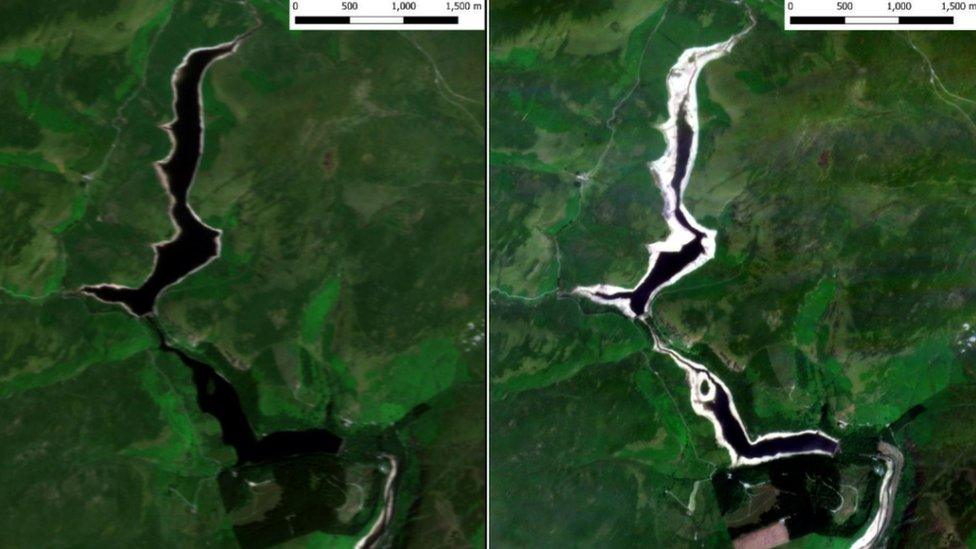
Comparison of the Elan Valley reservoirs (Craig Goch and Pen y Garreg) in July 2021 (left) and a year later (right)
"Welsh government have got a target for 110 litres per person in new builds, which is better but still not near where we should be getting to," said Mr Lake.
He said that a target of 80 litres per day would force new-build homes to implement stricter water saving measures to meet the "stringent and ambitious target".
Mr Lake added that although that target might seem severe, other countries were already nearing it.
Hosepipe ban: 'How will I water my tomatoes?'
"Residents in some other countries are already far below that figure of 140 or 150 litres per person per day," he said.
"People in Brussels for instance are already on 96 litres per person per day so it shows where we can get to immediately let alone where we should be aiming for in the future."
The Consumer Council for Water's senior policy manager for Wales, Lia Moutselou, said it was hard to predict whether further restrictions would be put in place.
"The problem with water resources at the moment is that there has been a dry winter and a longer summer period, without much rainfall and high temperatures," she said.
"We all need to do our best and stick to essential use, these restrictions are temporary.
"It's only a hosepipe ban, we need look at small simple changes that we all can do to make a difference - watering our plants with a watering can and getting a water butt, we all need to do out bit to ensure there is enough water for essential use for all of us."
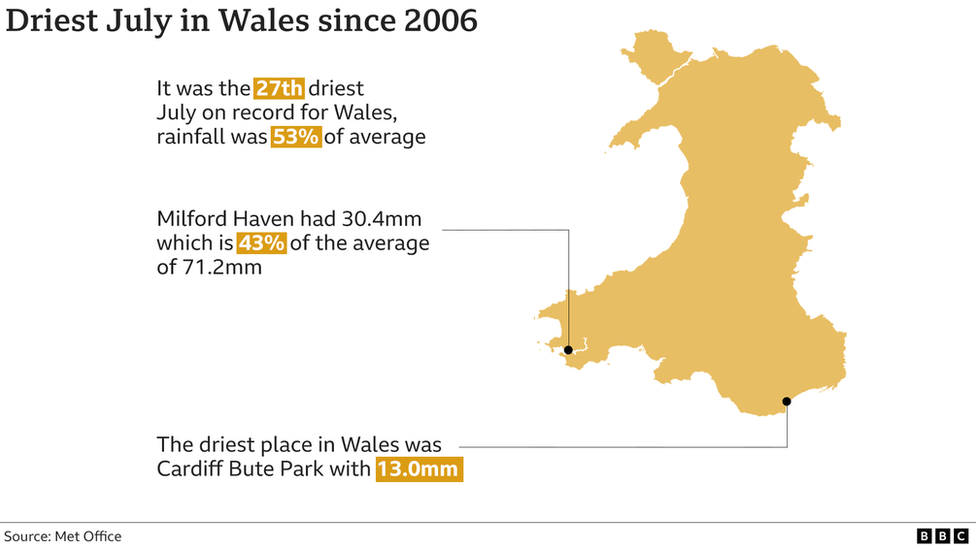
The Welsh government said: "The current prolonged dry weather period reflects the challenges we all face in tackling climate change.
"We all have a duty to use water sustainably - at all times. We continue to work with water companies and Natural Resources Wales, the regulatory body responsible for managing water resources in Wales, to better ensure our use of water has the interests of future generations at its heart."

RESCUING DAD: Dai Chant returns to the sea after 30 years
SHORT FILMS FROM WALES: Made by up-and-coming Welsh film-makers

Related topics
- Published4 August 2022
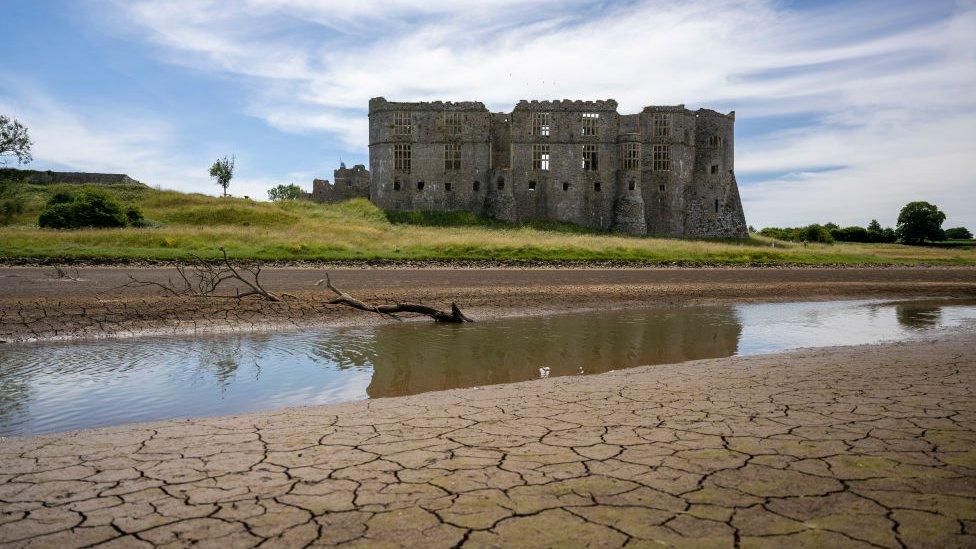
- Published30 August 2022
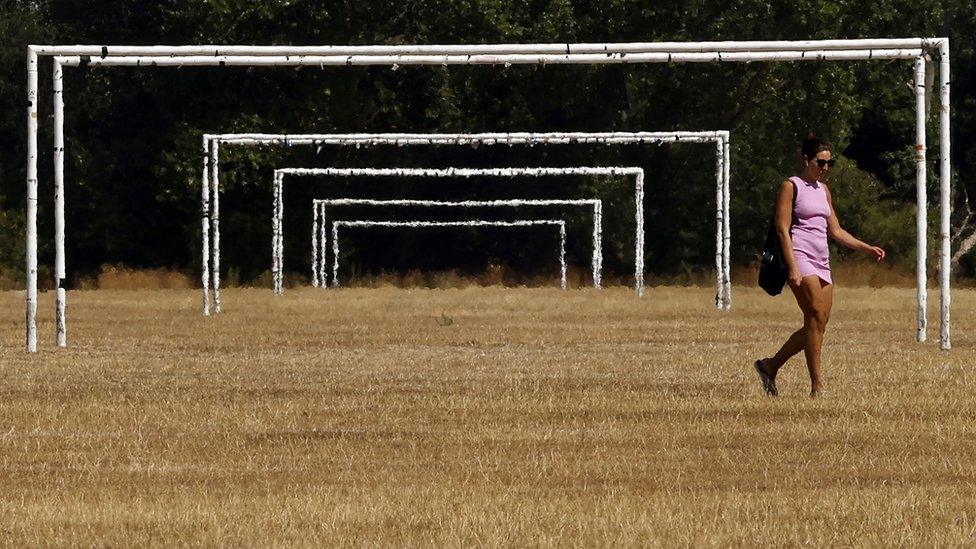
- Published16 June 2023
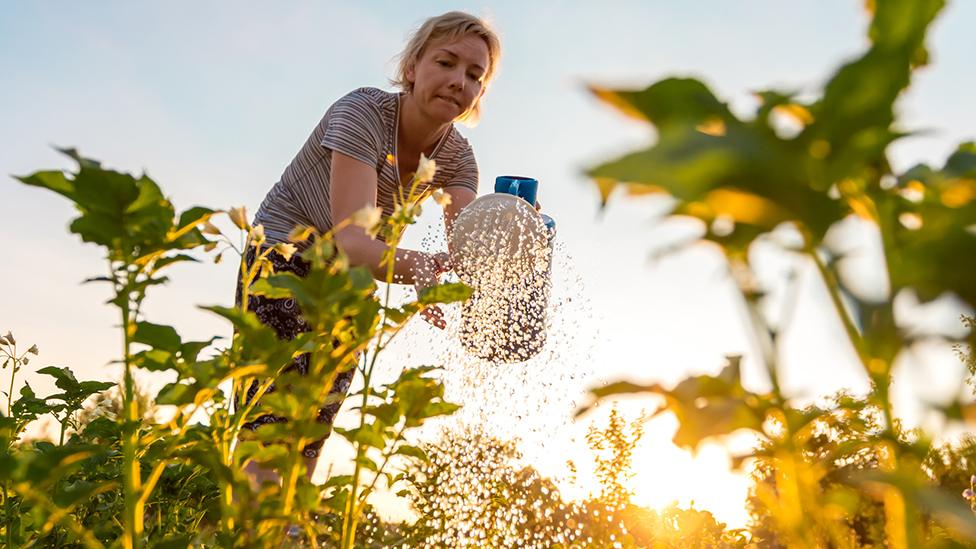
- Published4 August 2022
